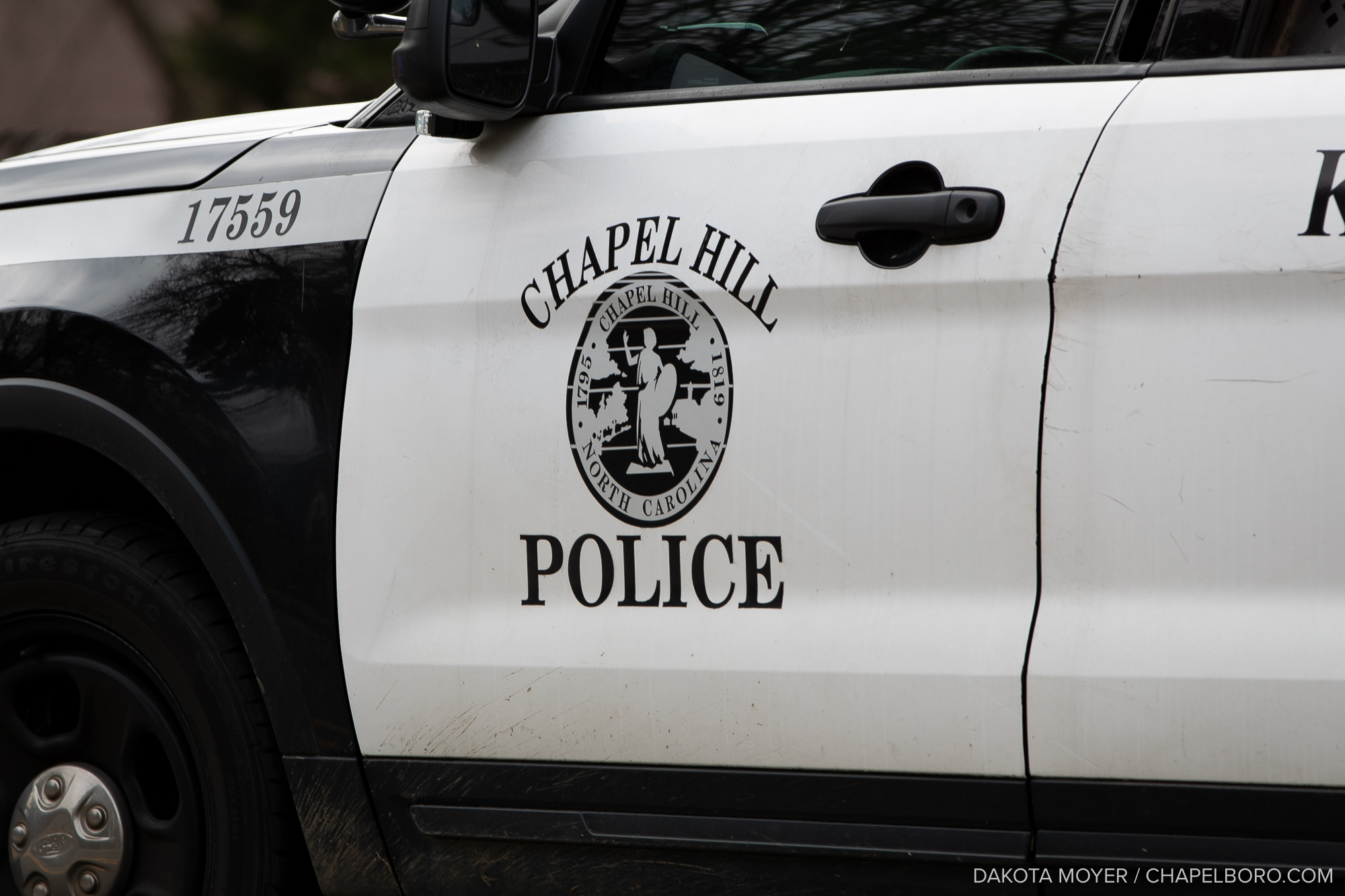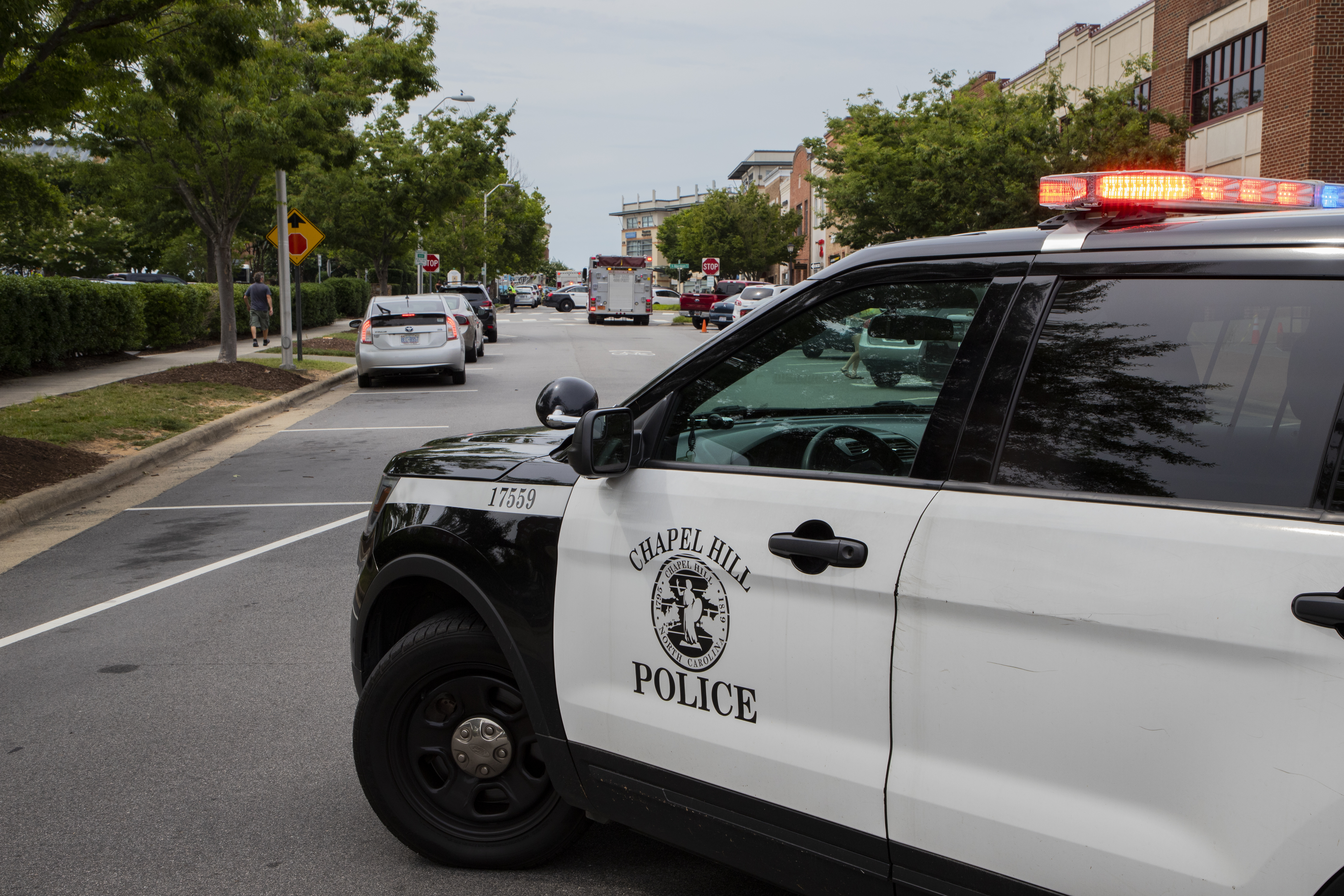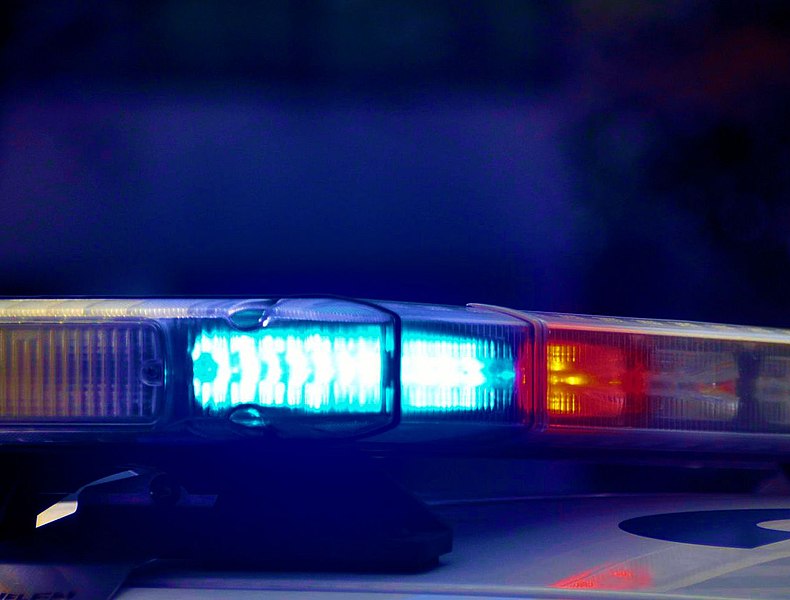“My memories are pretty vivid.”
Chapel Hill Police Chief Chris Blue said he remembers where he was standing on February 10, 2015, when the dispatch went out that there had been a shooting at the Finley Forest Condos in Chapel Hill.
“I remember going to the scene and, of course, finding out what we had was a triple homicide.”
That night the lives of three young Muslim college students – 23-year-old Deah Barakat, his wife 21-year-old Yusor Abu-Salha and her sister 19-year-old Razan Abu-Salha – who had spent their time on earth volunteering and working on ways to give back to their community were cut short by a neighbor with gun.
Craig Stephen Hicks entered guilty pleas on Wednesday to three counts of murder and one count of discharging a firearm into an occupied dwelling. He’ll spend the rest of his life in prison.
Hicks spent his time around the housing complex intimidating neighbors over his incorrect interpretation of the parking regulations, prosecutors said Wednesday. Hicks also used different intimidation tactics depending on which neighbors he was targeting with his anger. White neighbors reported receiving letters from Hicks and that he shouted at them. But Hicks would show a firearm and make other threatening remarks when the neighbors were minorities.
The morning after the shooting, Chapel Hill Police put out the department’s first statement following the murders that said:
“Our preliminary investigation indicates that the crime was motivated by an ongoing neighbor dispute over parking. Hicks is cooperating with investigators and more information may be released at a later time.”
The characterization that the shootings were over a parking dispute drew immediate pushback from the families of the victims and members of the Muslim community across the nation. They urged for the murders to be categorized as a hate crime.
“No, that didn’t go how we intended for it to go in any way,” Blue said in an interview on Tuesday afternoon, before Wednesday’s sentencing. “And I mean that with the utmost of respect to the families and friends of the victims.”
Video evidence shown in court on Wednesday of Chapel Hill Police interviewing Hicks after he turned himself in the night of the shootings showed Hicks telling officers that there was an ongoing dispute over parking at the complex and that the victims had been hostile toward him. Video evidence of the shooting recorded on Barakat’s phone proved that to be false.
Blue said on Tuesday that putting out the initial statement originated from the department wanting to establish that there was no ongoing threat to the Muslim community in Chapel Hill or the community at large and to share what information was available.
“Our long history of trying to share as much information as we can probably drove us to share information in a way that was not particularly helpful and in fact was in many ways distracting,” the police chief said.
Blue added, “We’re not ever intending for our message to do harm, and I think we learned some things that morning.”
Blue also issued a statement following Wednesday’s sentencing hearing that began: “What we all know now and what I wish we had said four years ago is that the murders of Deah, Yusor, and Razan were about more than simply a parking dispute. The man who committed these murders undoubtedly did so with a hateful heart, and the murders represented the taking of three promising lives by someone who clearly chose not to see the humanity and the goodness in them.”
The statement also extends to the victim’s families the police department’s “sincere regret that any part of our message all those years ago added to the pain you experienced through the loss of Our Three Winners.”
The officers responding that night saw “a tragic scene,” Blue said.
“Young family members involved who were really murdered in an unbelievably cold-blooded fashion. The actual scene itself was devastating for our responders.”
There was also a common theme from conversations with members of the Muslim community from the subsequent investigation.
“This real palpable since of fear,” as Blue described it. “And, in fact, not as a result of these murders. But these murders illustrated the kind of fear that they dealt with all the time.”
He said this crime was viewed as a direct result of a growing sense of Islamophobia and sense of otherness across the country, among the Muslim community particularly.
“I know I didn’t appreciate just how much fear there was until they told me about it,” Blue said. “And now I get it as much as I can probably get it.”
One revelation that came about through the shooting and the investigation was “a hole,” as Blue described it in Tuesday’s interview: the lack of a strong relationship with the Muslim community, specifically, and the faith community as a whole.
“Thankfully a number of members of both of those groups reached out to us early on and really stressed the interest in relationship building and building community.”
He called it “disappointing” to realize that “a hole” existed with any communities across Chapel Hill.
Blue said a group of clergy members has now formed that meets roughly once a quarter to discuss community interests and ways of offering support.
“And there is absolutely no doubt that the existence of that group, and its continued existence now several years removed is a direct result of what we learned in the days and weeks after those murders,” Blue said.
Through efforts from the families of the victims, who Blue described as “remarkable,” police across the Triangle have been invited for conversations, meals and other community-building experiences with Islamic centers in Raleigh and Chapel Hill.
Blue said Muslims in Chapel Hill were initially hesitant about publicizing their worship service locally due to fear.
“When you hear that as a police officer, it’s hard not to take that personally,” the police chief said. “Because establishing safety and building a community where people feel safe to worship how they choose and where they choose, that’s a fundamental part of our job.”
Blue encouraged residents to continue this community building and to extend a welcoming hand to vulnerable groups.
“We take care of each other pretty well, and I’ve seen us rally around one another when that time is needed most,” Blue said. “And we certainly saw that after these three horrible murders.
“And I would say we should all – as we continue to get busier and increasingly disconnected from one another – we really should take time to focus on those in our community who feel the most vulnerable and to keep them close to us, both in our hearts but also in terms of how we look out for each other.”







